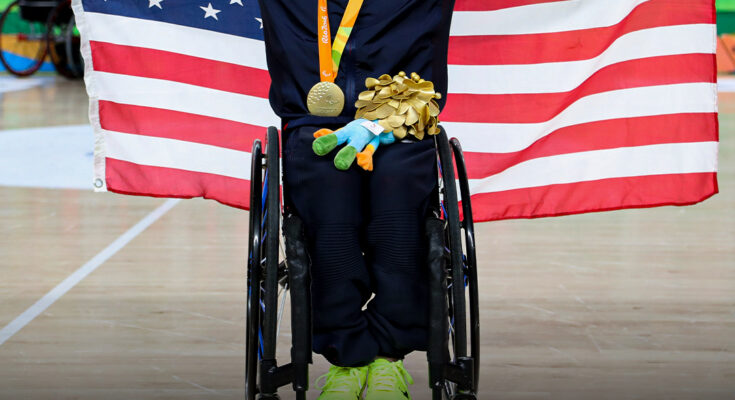Paralympic champions are finally getting the recognition they deserve, with a major rule change boosting their prize money. This marks a pivotal moment in the push for equality in sports. But how does this impact the athletes, and what does it mean for the future of para-sports?
For years, Paralympic athletes have faced a huge disparity in how their achievements are financially recognized compared to their Olympic counterparts. While Olympians often receive substantial rewards for their medal-winning performances, Paralympians have traditionally been overlooked in prize money and public recognition.
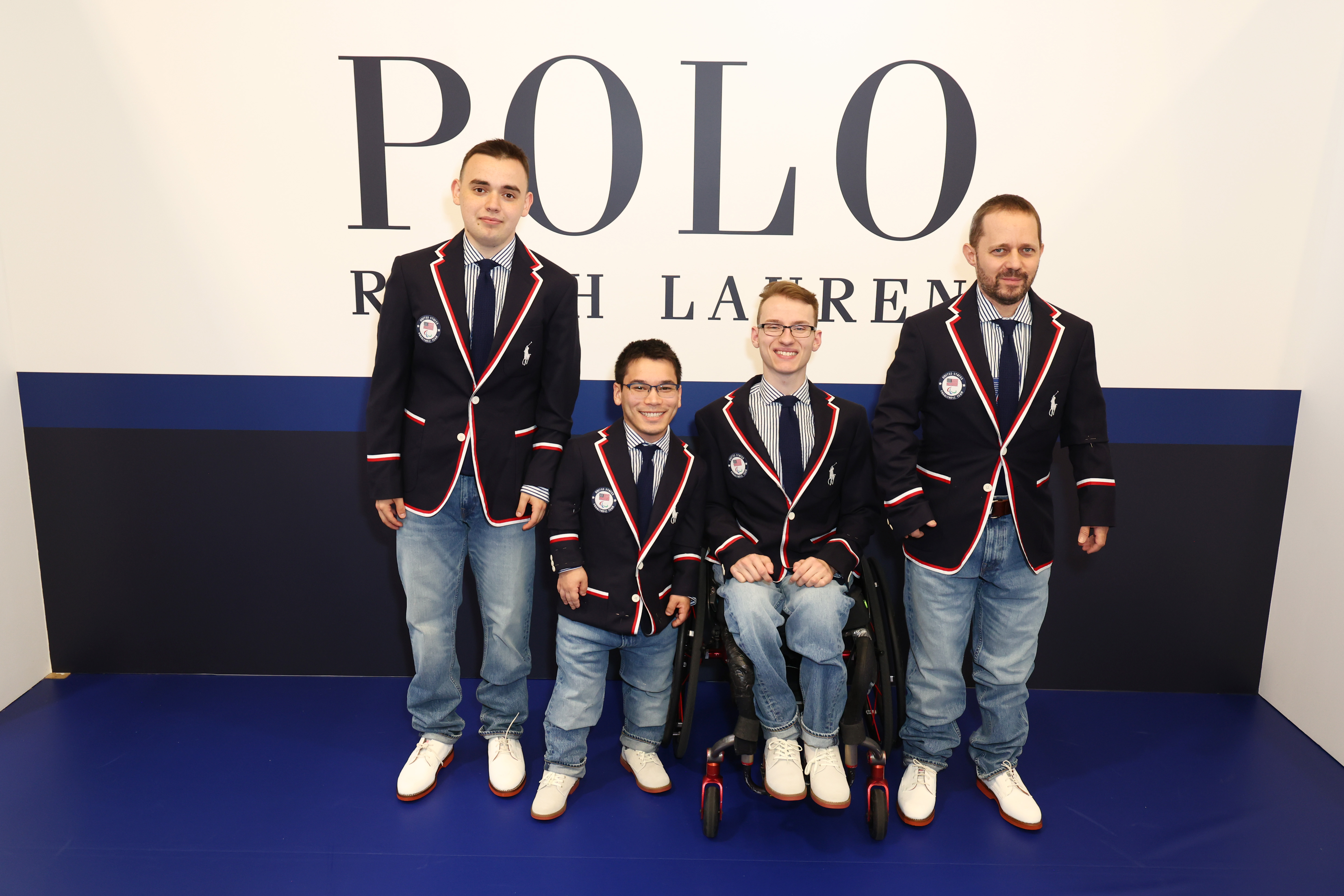
U.S. Paralympians Ian Seidenfeld, Jenson Emburgh and Tahl Leibovitz pose for a photo in Paris, France on August 22, 2024 | Source: Getty Images
But this year marks a turning point. The United States Olympic Committee (USOC) implemented a new rule to bridge the gap between how Olympians and Paralympians are rewarded. With these changes, the conversation around equality in sports is intensifying.
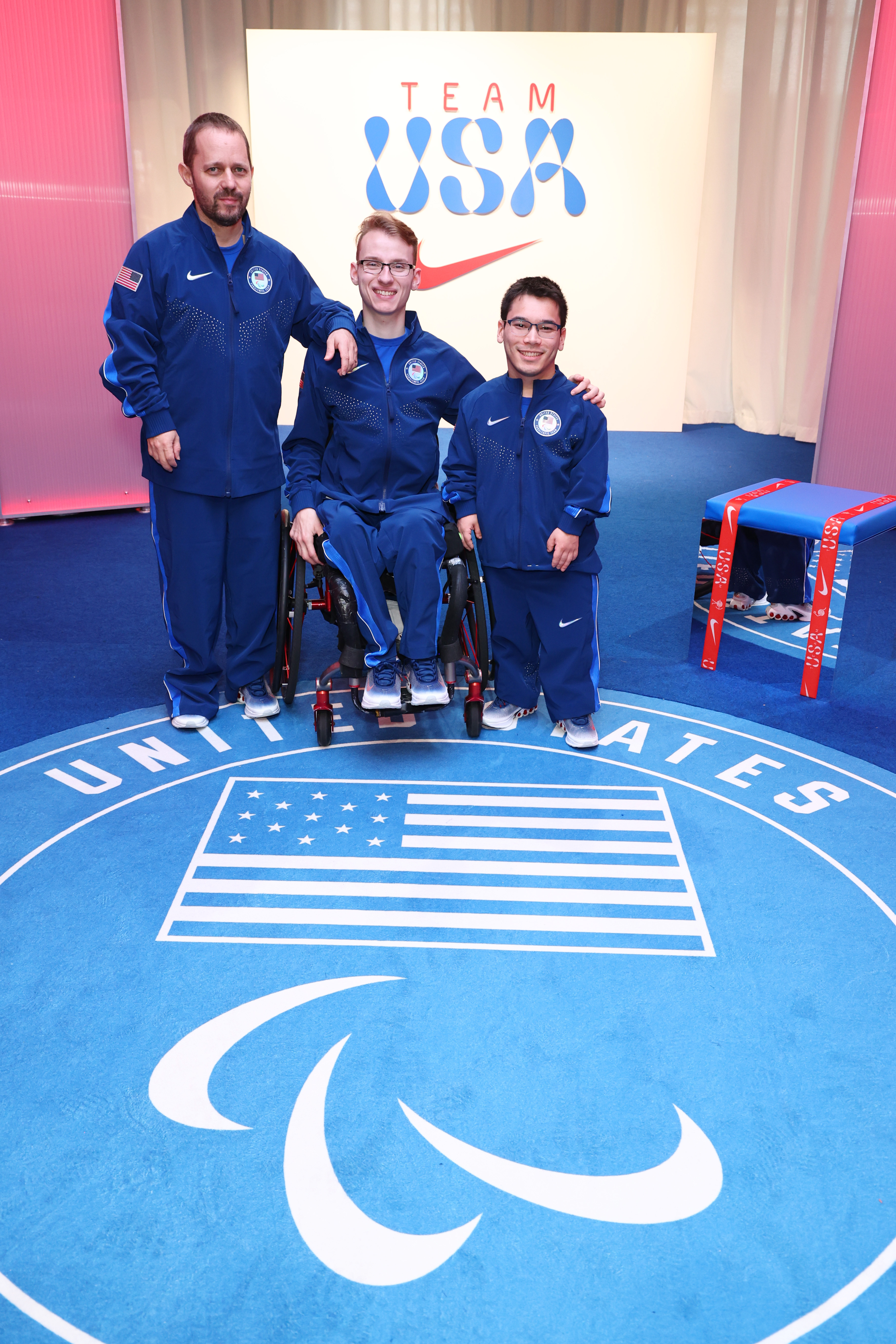
Team USA Paralympians Tahl Leibovitz, Jenson Emburgh and Ian Seidenfeld pose for a photo in Paris, France on August 22, 2024 | Source: Getty Images
A New Era of Equality for U.S. Paralympians
The United States Olympic and Paralympic Committee has announced that U.S. Paralympians will now receive the same financial rewards as their Olympic counterparts for medal-winning performances.
This decision is a part of the “Operation Gold Awards” program, which aims to bridge the gap in recognition and compensation between the two groups of athletes.
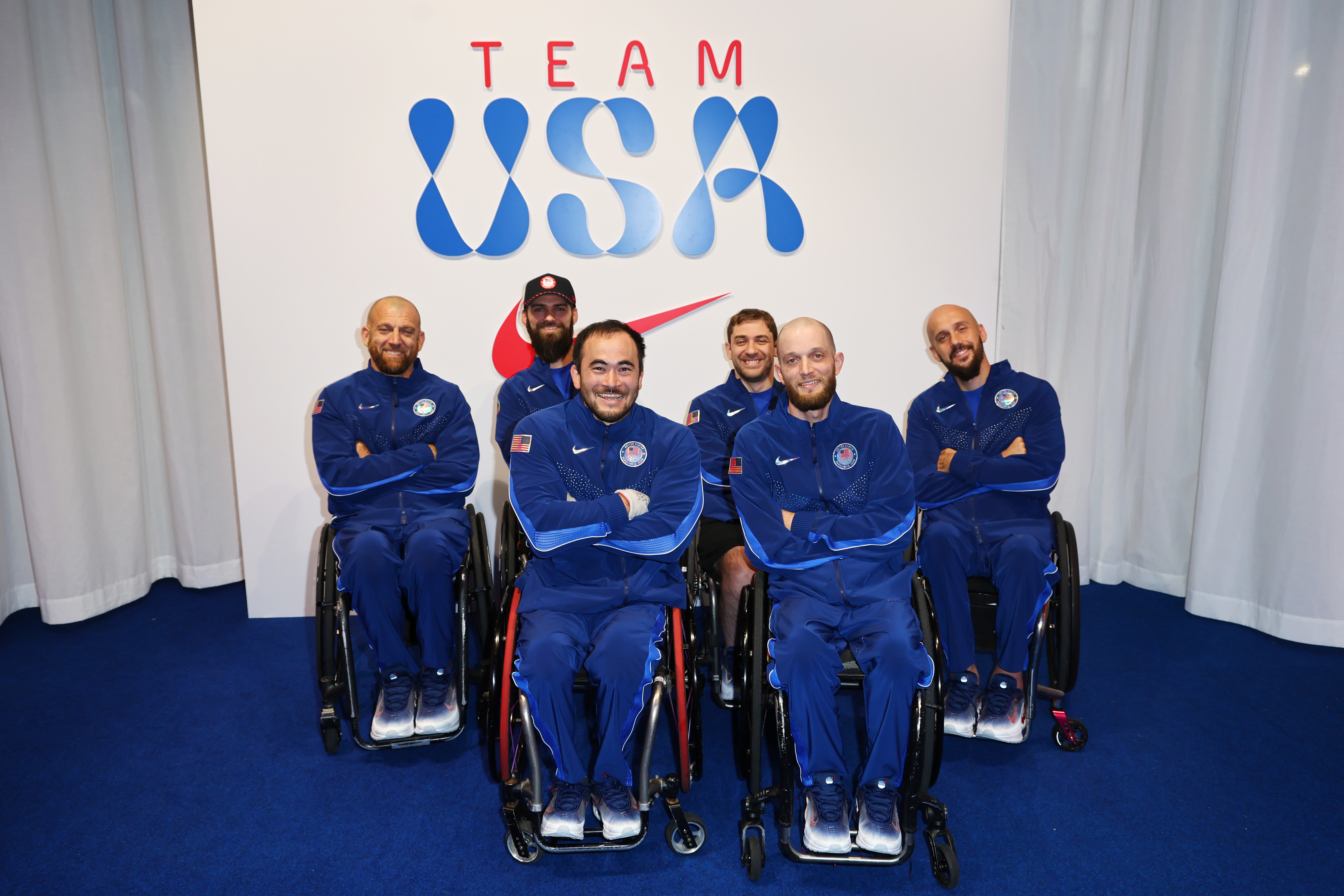
U.S. Paralympians Chuck Melton, Clayton Brackett, Charles Aoki, Jeff Butler, Bradley Hudspeth and Eric Newby pose for a photo in Paris, France on August 22, 2024 | Source: Getty Images
Under this new initiative, Paralympic athletes will see their payouts increase by as much as 400 percent. This adjustment is not just a forward-looking change.
It also applies retroactively, ensuring that those who earned medals at the PyeongChang 2018 Winter Paralympics will receive the increased payments.
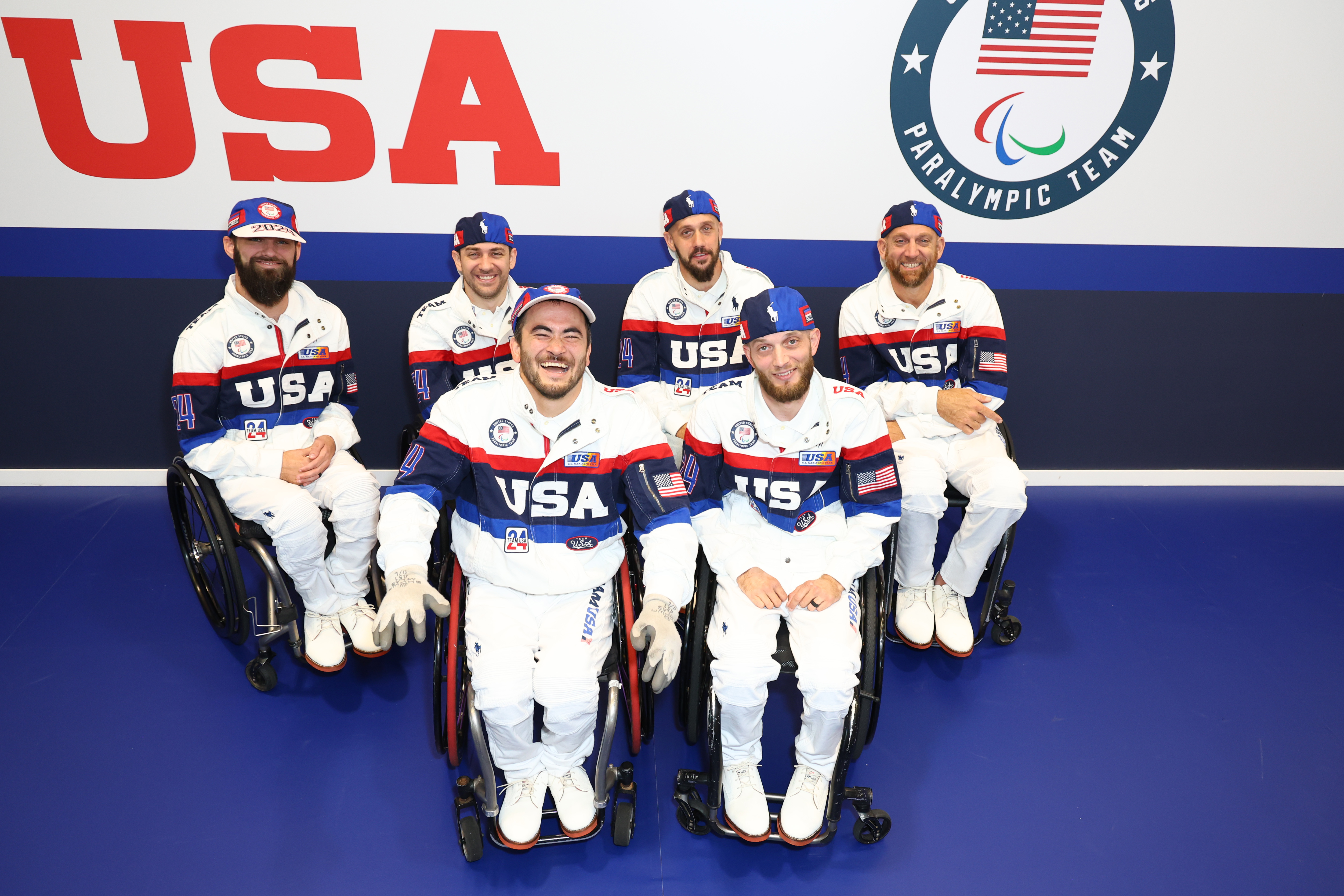
Team USA Paralympians Clayton Brackett, Jeff Butler, Charles Aoki, Eric Newby, Bradley Hudspeth and Chuck Melton pose for a photo in Paris, France on August 22, 2024 | Source: Getty Images
In total, more than $1.2 million will be distributed to the 2018 Winter Paralympic medalists, acknowledging their hard-earned achievements.
Sarah Hirshland, the CEO of the USOC, emphasized the importance of this change, stating, “Paralympians are an integral part of our athlete community, and we need to ensure we’re appropriately rewarding their accomplishments.”
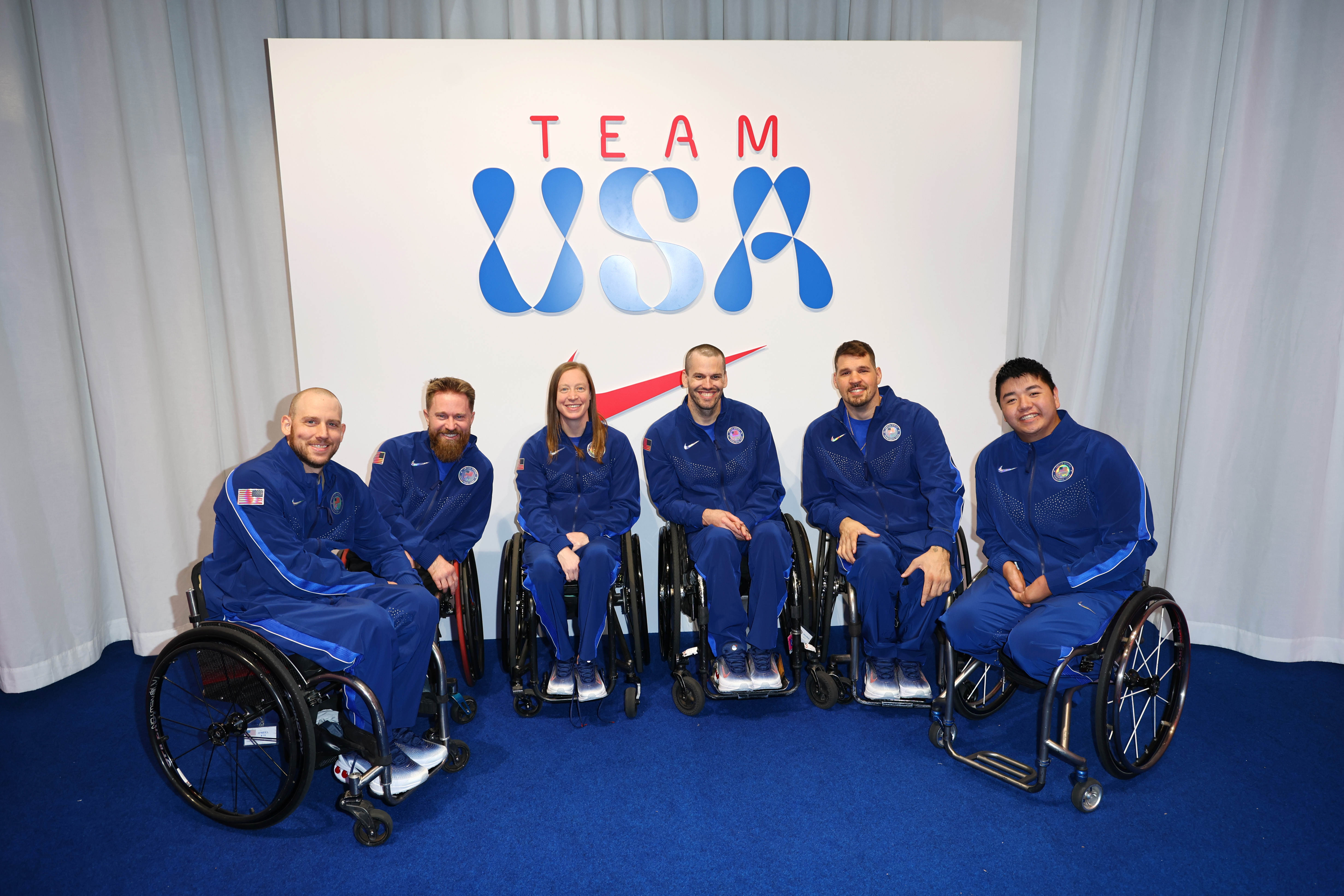
Team USA Paralympians Joshua O’Neill, Lee Fredette, Sarah Adam, Josh Wheeler, Mason Symons and Zion Redington pose for a photo in Paris, France on August 22, 2024 | Source: Getty Images
This move indicates the USOC’s commitment to creating a more inclusive and equitable environment for all athletes, regardless of their physical abilities.
The decision not only recognizes the outstanding performances of Paralympic athletes but also sets a new standard for how they are valued in the sports community.
It’s important to understand the broader context in which Paralympic athletes operate, especially regarding financial compensation.
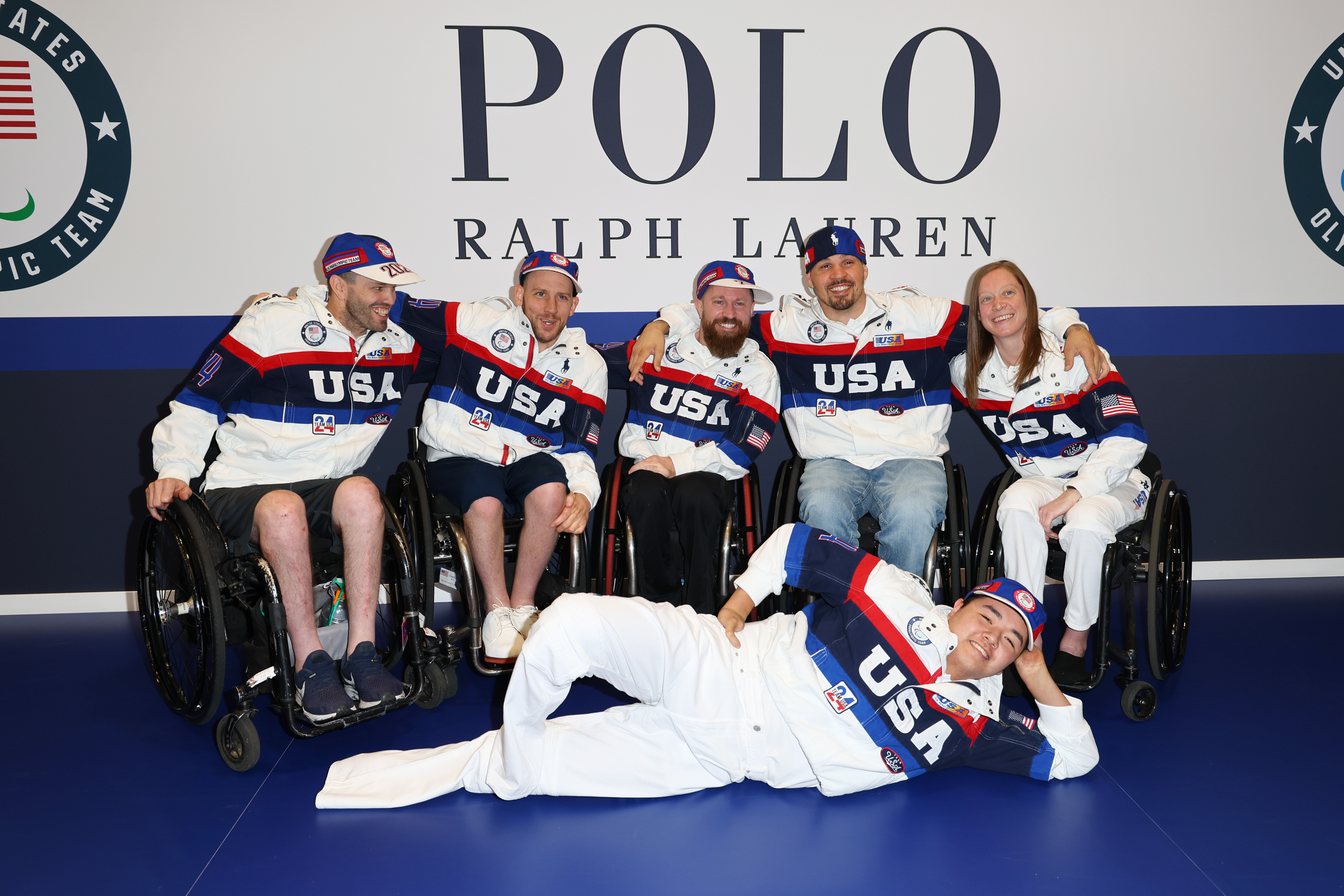
Team USA Paralympians Josh Wheeler, Joshua O’Neill, Lee Fredette, Mason Symons, Zion Redington and Sarah Adam pose for a photo in Paris, France on August 22, 2024 | Source: Getty Images
International Paralympic Prize Money Comparison
While the United States has taken a step toward financial equality for Paralympians, the situation remains varied across the globe. One of the most significant challenges facing Paralympians worldwide is the lack of financial rewards.
This is especially concerning given the high costs associated with competing in para-sports. These costs often include specialized equipment like wheelchairs, prosthetics, and other adaptive devices.
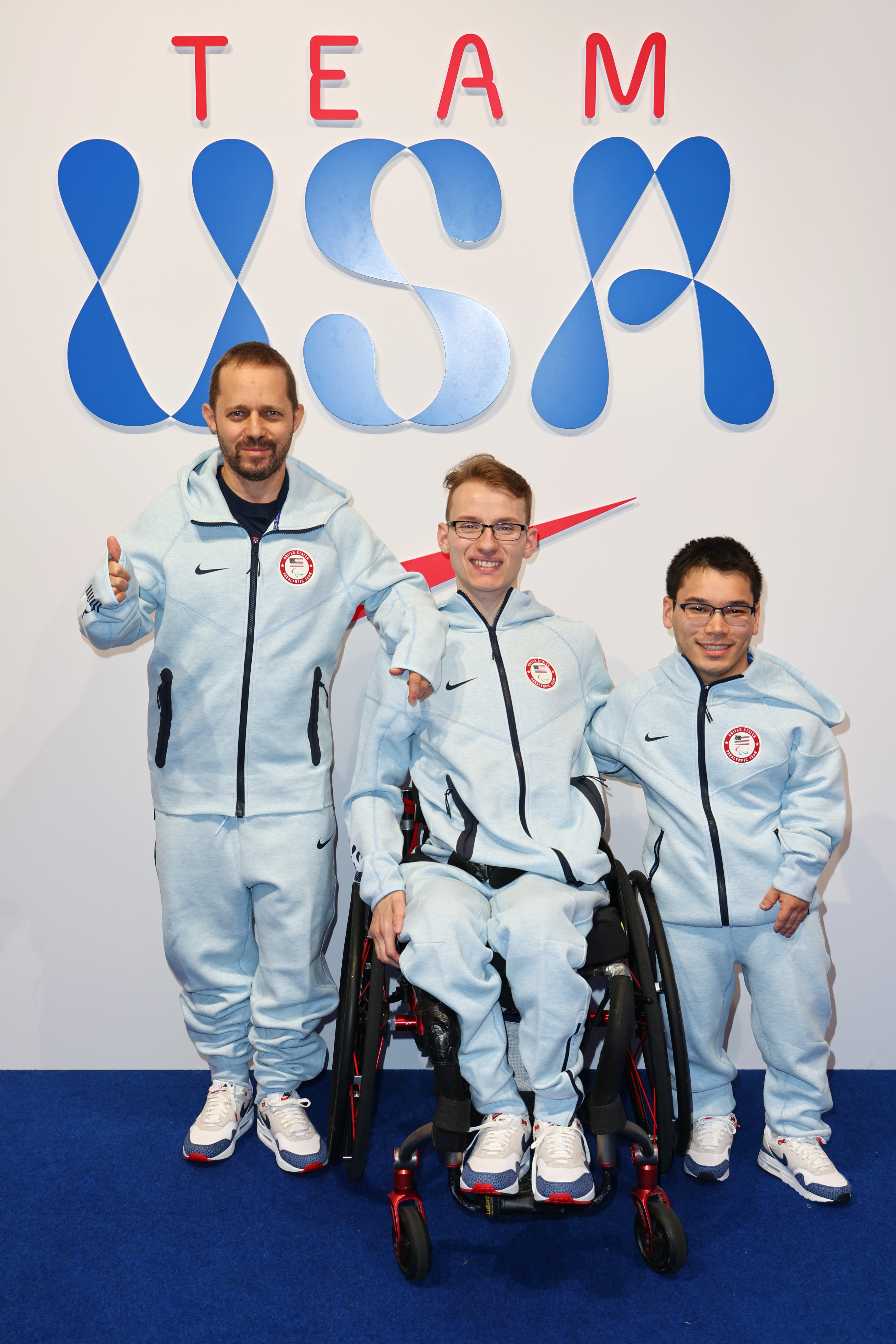
Team USA Paralympians Tahl Leibovitz, Jenson Emburgh and Ian Seidenfeld pose for a photo in Paris, France on August 22, 2024 | Source: Getty Images
The International Paralympic Committee (IPC), the governing body responsible for organizing the Paralympic Games, does not offer prize money for medal winners.
This policy applies to the Paralympic Games and other competitions like athletics and swimming under the IPC’s jurisdiction. The absence of prize money is a significant issue, as it leaves Paralympians without the financial incentives that are often crucial for their continued participation and success in sports.
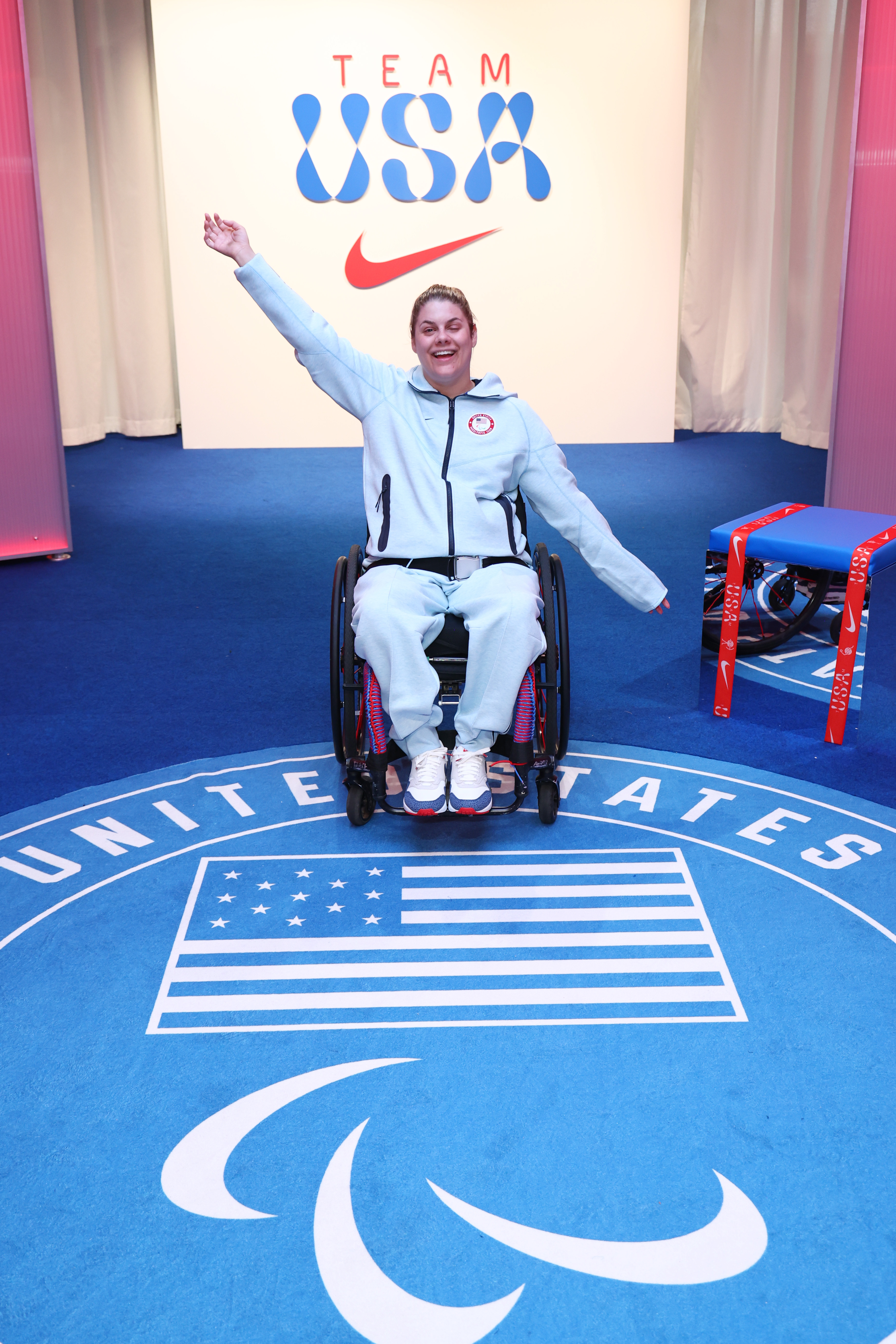
Team USA Paralympian Tracy Otto poses for a photo in Paris, France on August 22, 2024 | Source: Getty Images
Adding to the challenge, most international governing bodies for other para-sports also do not offer prize money, further limiting the financial opportunities available to Paralympians. However, there are a few exceptions.
For instance, wheelchair tennis, marathon racing, and para-equestrian events provide some monetary rewards at certain competitions. Nevertheless, these exceptions are few and far between, leaving a majority of para-athletes to compete for little more than the honor and recognition that comes with winning.
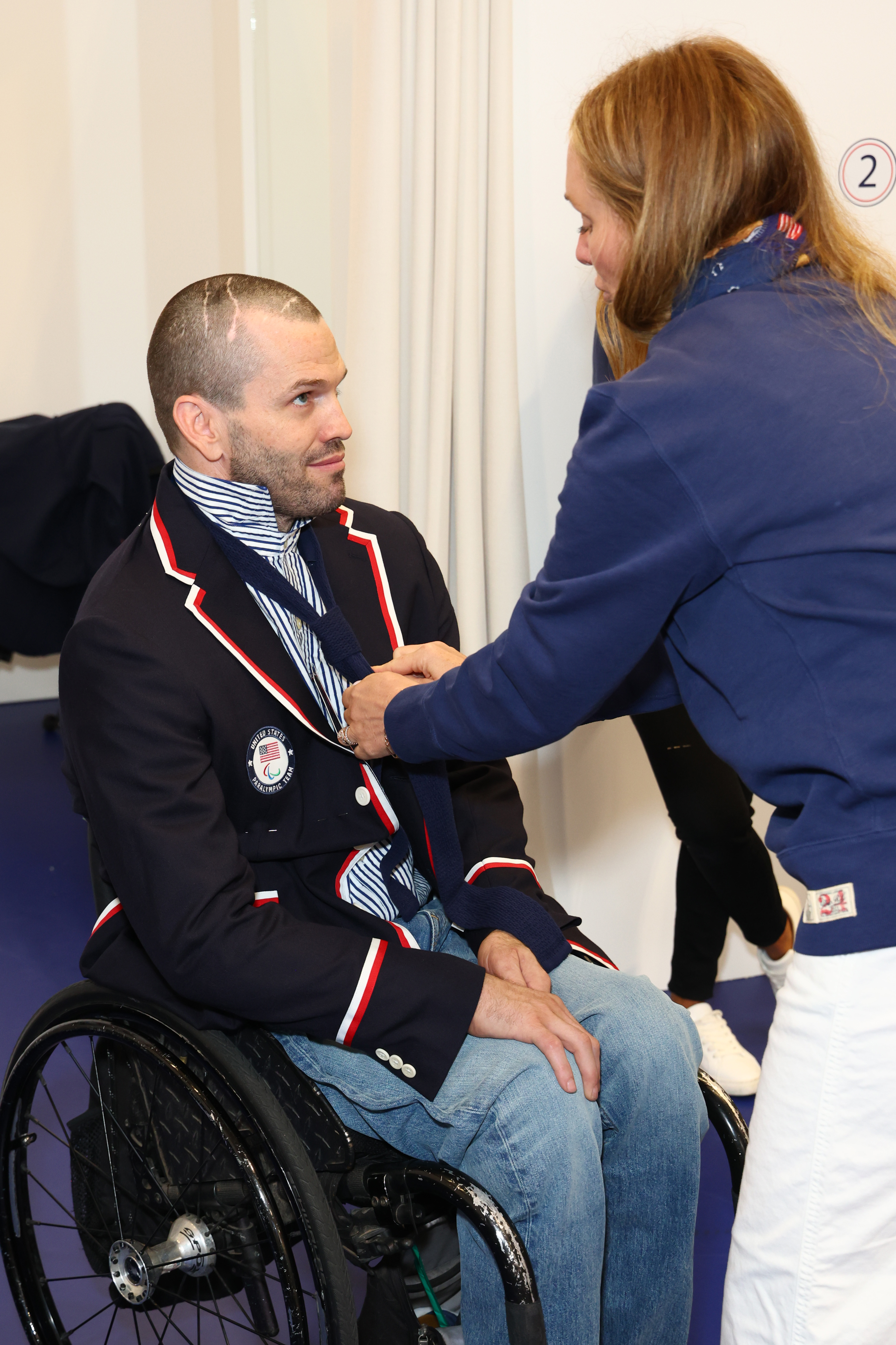
Team USA Paralympian Josh Wheeler poses for a photo in Paris, France on August 22, 2024 | Source: Getty Images
The disparity becomes even more evident when looking at how different countries handle rewards for their Paralympic athletes. For instance, the Canadian Paralympic Committee (CPC) launched the “Paralympic Performance Recognition” program in January 2024.
For the first time, this program will provide financial rewards to Paralympians on par with their Olympic counterparts. Gold medalists can now expect to receive $20,000, silver medalists $15,000, and bronze medalists $10,000 — amounts identical to those awarded to Canadian Olympians.
This new initiative is backed by an $8 million endowment from the Paralympic Foundation of Canada, ensuring its sustainability for future games.
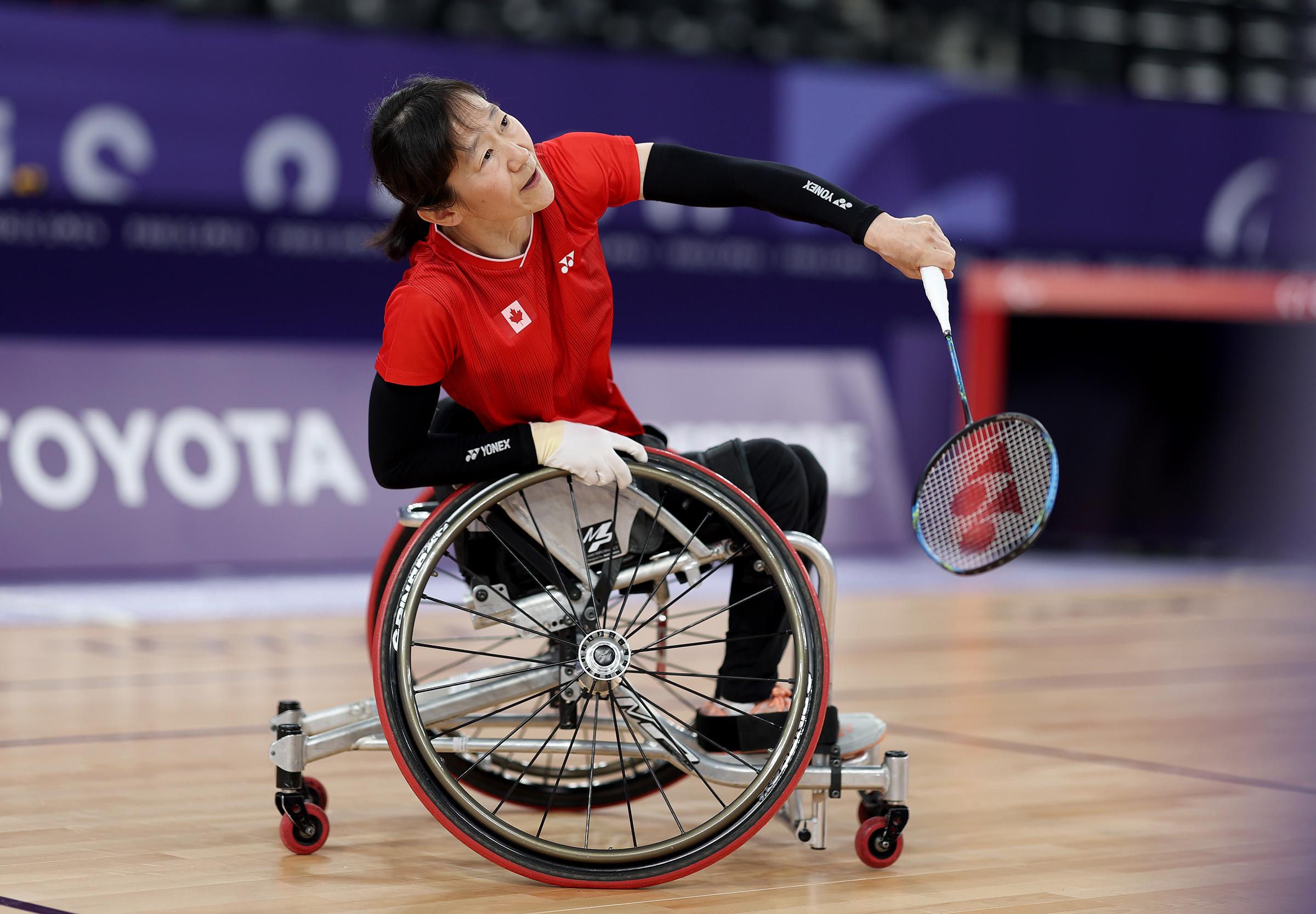
Yuka Chokyu of Canada returns a shot during a WH1 Para Badminton training session on August 26, 2024 | Source: Getty Images
In contrast, Paralympians in countries like Hong Kong and India also receive financial rewards, but the amounts and conditions vary. Hong Kong’s government, through various schemes, offers significant financial incentives to its Paralympic medalists.
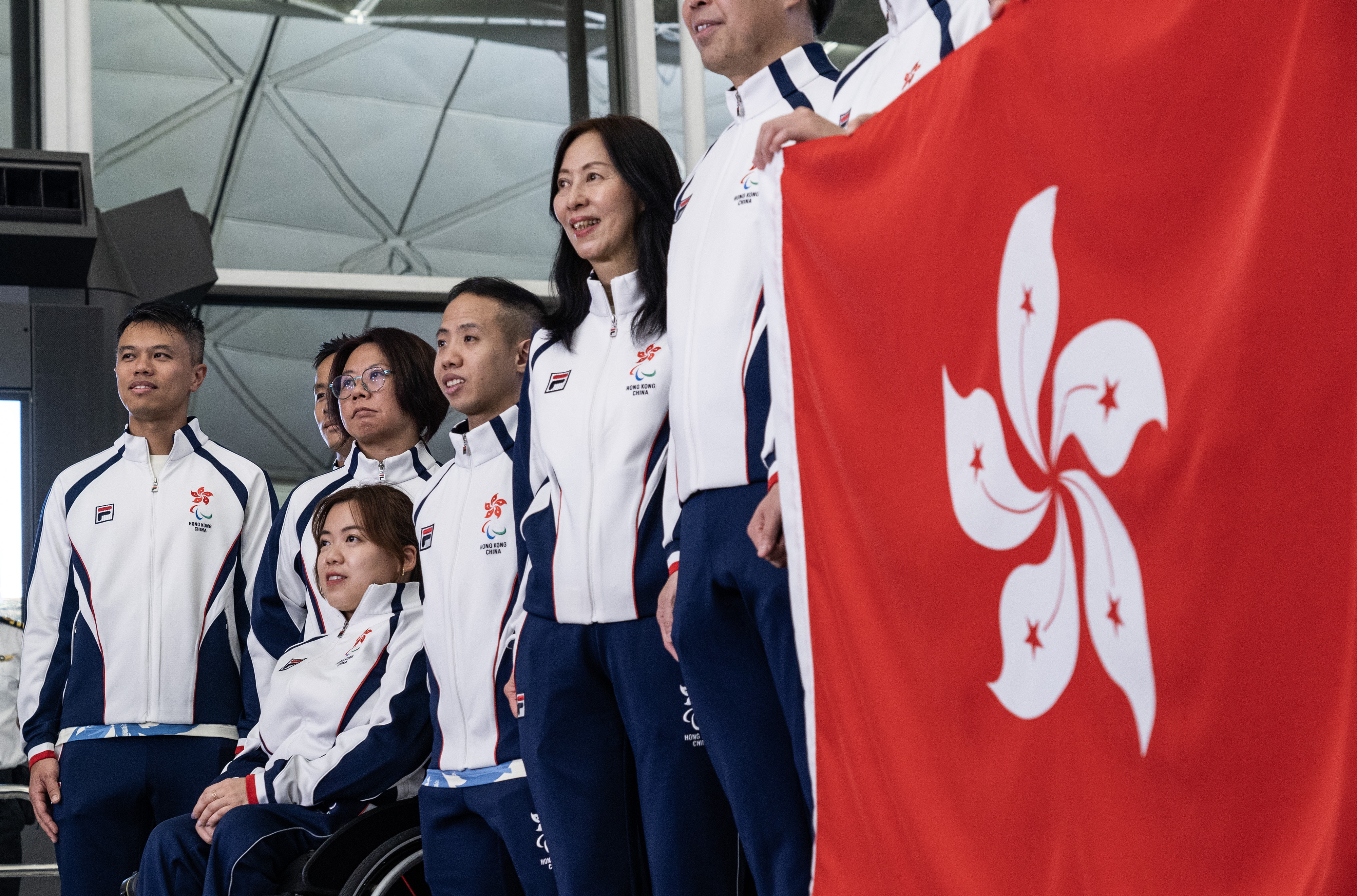
Members of the Hong Kong, China delegation to the Paris 2024 Paralympic Games on August 24, 2024 | Source: Getty Images
Similarly, in India, are rewarded with cash awards that match those given to Olympians, demonstrating a growing recognition of the need for equity.
Despite these positive developments in certain countries, the broader landscape remains uneven. Many Paralympians worldwide still receive little to no financial recognition for their achievements.
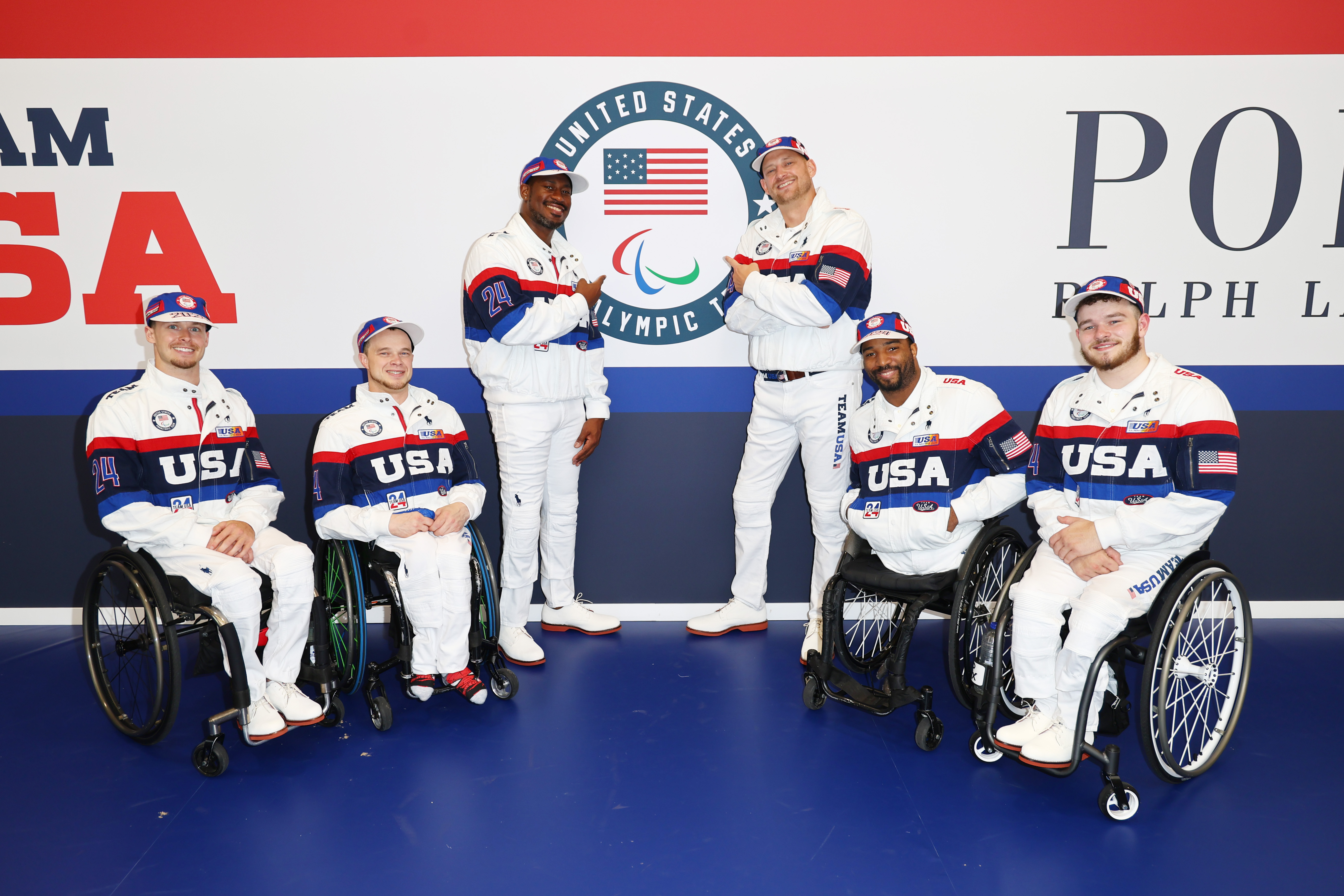
Team USA Paralympians Talen Jourdan, John Bole, Brian Bell, Nathan Hinze, Trevon Jenifer and AJ Fitzpatrick pose for a photo in Paris, France on August 22, 2024 | Source: Getty Images
This raises important questions about the value placed on Paralympic sports and the need for further global efforts to ensure that all athletes are rewarded fairly for their hard work and dedication.
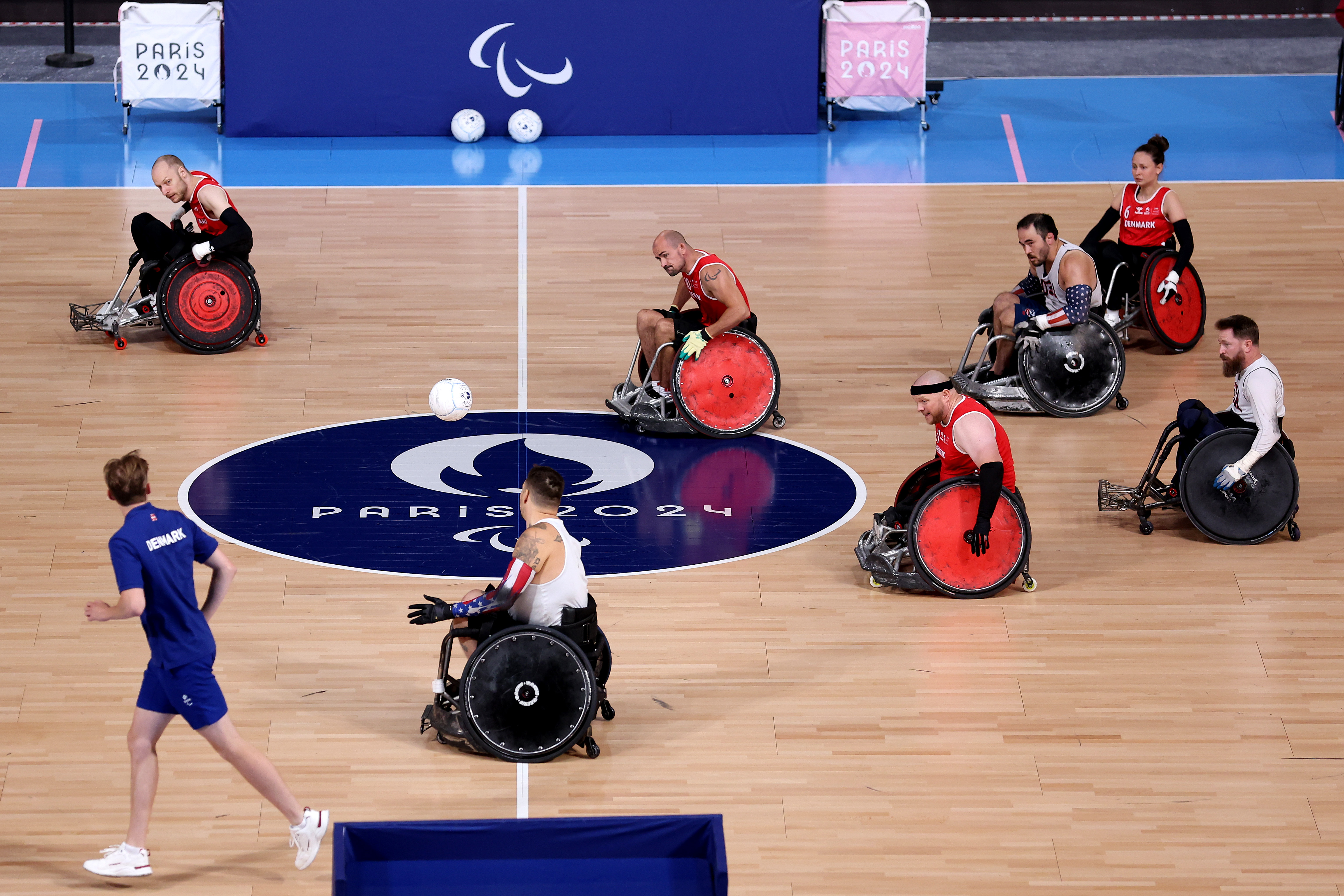
Team USA playing wheelchair rugby scrimmage against Team Denmark in Paris, France on August 25, 2024 | Source: Getty Images
Why the Change Matters
The decision by the USOC to equalize prize money for Paralympians and Olympians is more than just a financial adjustment. It’s a powerful statement about the value of athletes with disabilities.
For far too long, Paralympic athletes have been recognized as second-class competitors despite the immense dedication, skill, and determination they bring to their sports.
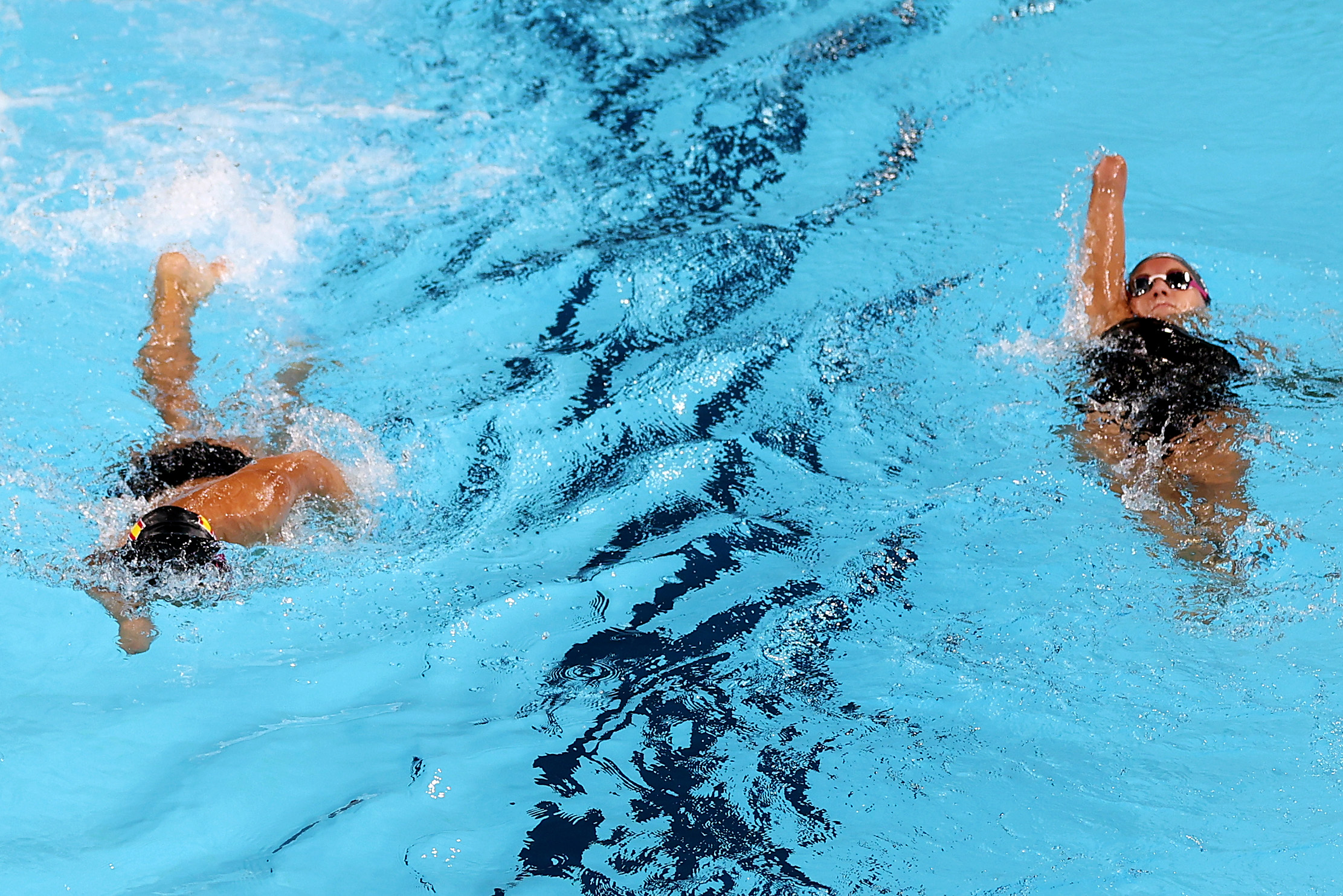
Competitors swim laps at the Paris 2024 Summer Paralympic Games on August 26, 2024 | Source: Getty Images
This change in the U.S. is a crucial step toward addressing this inequity and sends a clear message that all athletes deserve to be celebrated and rewarded equally.
The broader implications of this move extend beyond just the U.S. It highlights the ongoing need for equality in sports on a global scale. As Paralympians often face higher costs due to specialized equipment and training needs, financial support becomes even more critical.
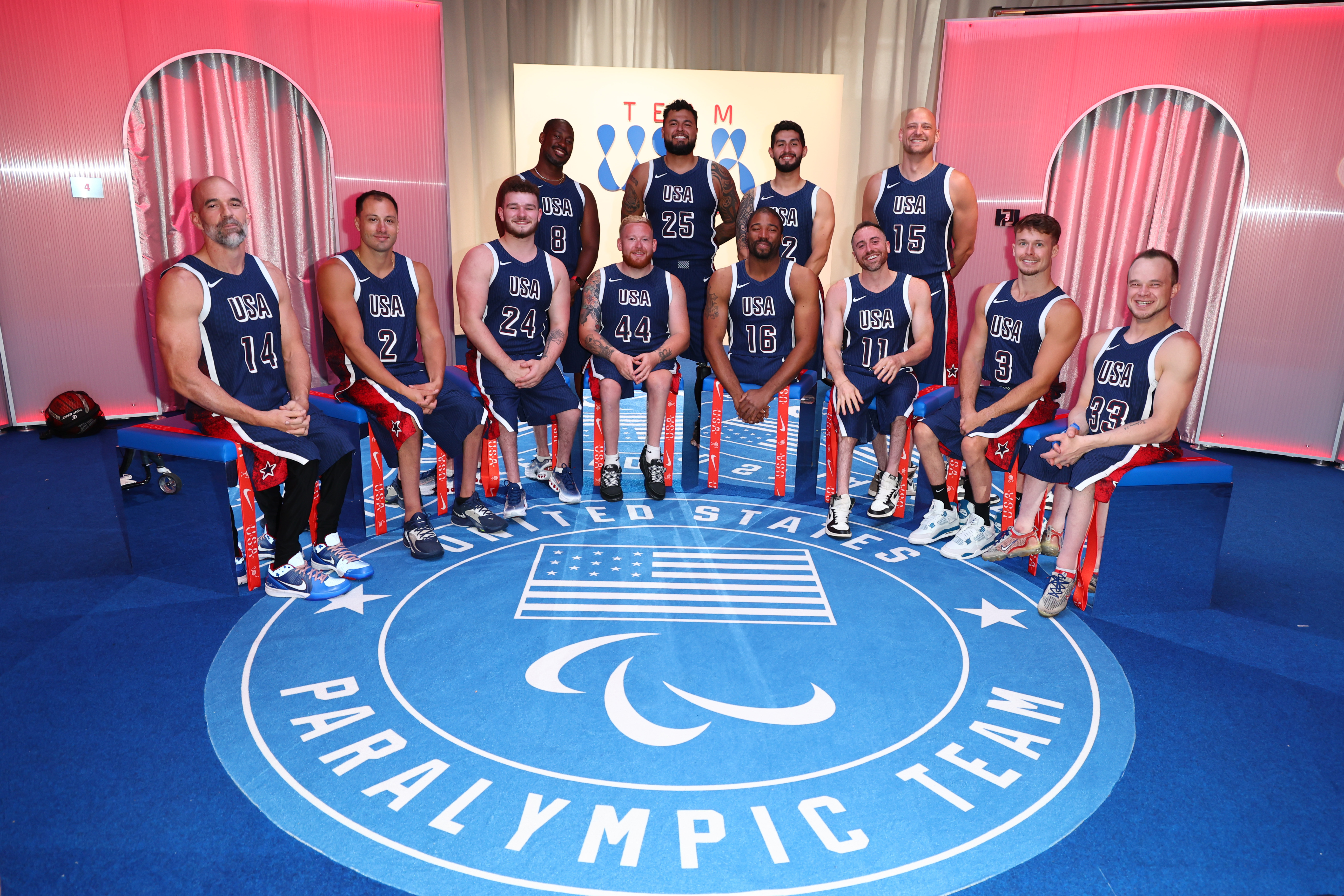
Team USA Paralympians pose for a photo ahead of Paralympics Paris 2024 on August 21, 2024 | Source: Getty Images
Public reaction to the change has been overwhelmingly positive, with many expressing that this move was long overdue. Social media platforms and online forums have seen a wave of support for the decision, with users voicing their opinions on the need for equality in sports.
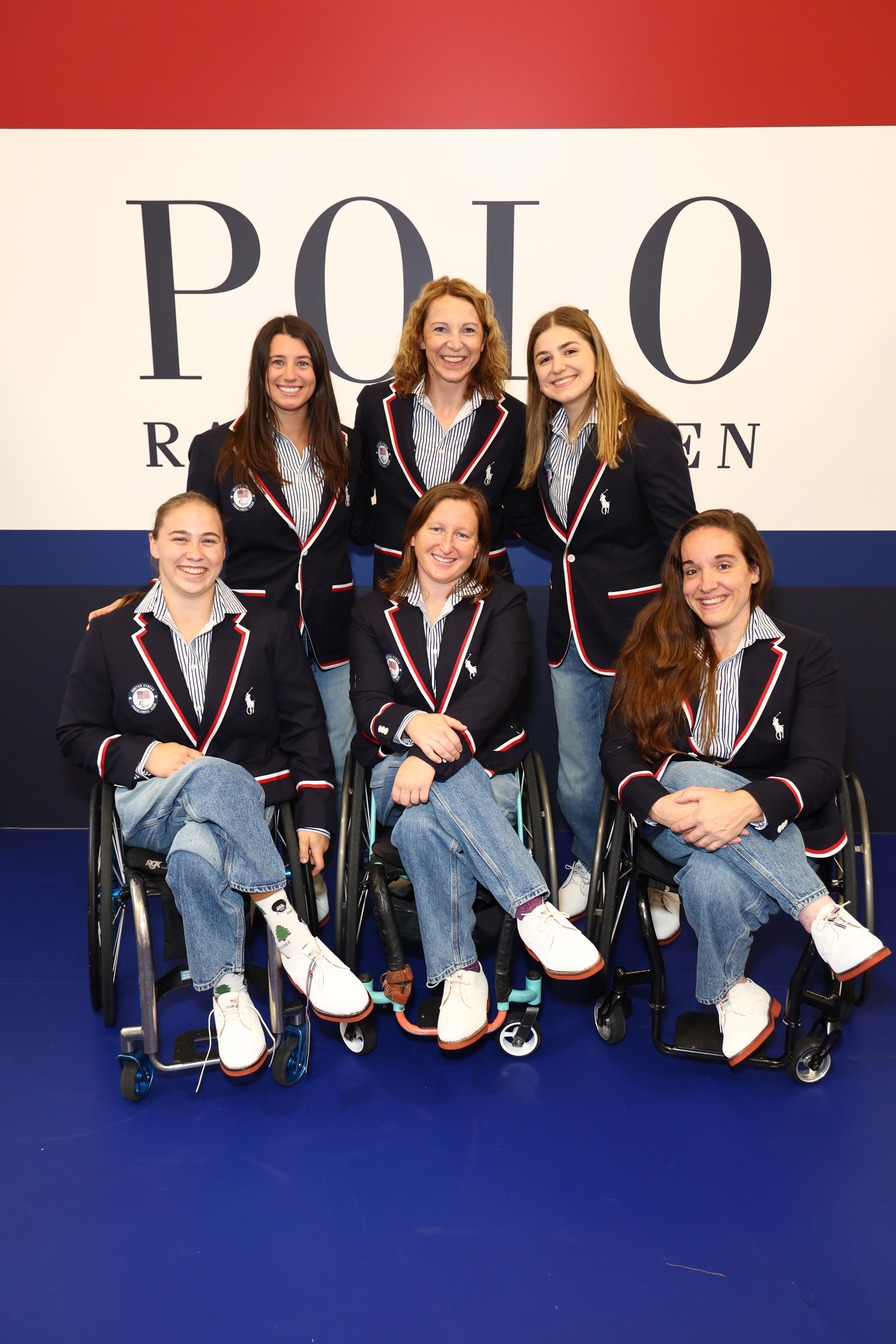
Team USA Paralympians Lindsey Zurbrugg, Emily Oberst, Courtney Ryan, Natalie Schneider, Bailey Moody and Rebecca Murray pose for a photo in Paris, France on August 21, 2024 | Source: Getty Images
One user pointed out, “Given they have a disadvantage, they should be paid more,” reflecting the sentiment that Paralympians often face greater challenges and thus deserve equal, if not greater, recognition.
Another user wrote, “There definitely needs to be financial rewards to our Paralympic medal winners to encourage the sports culture in every citizen.”
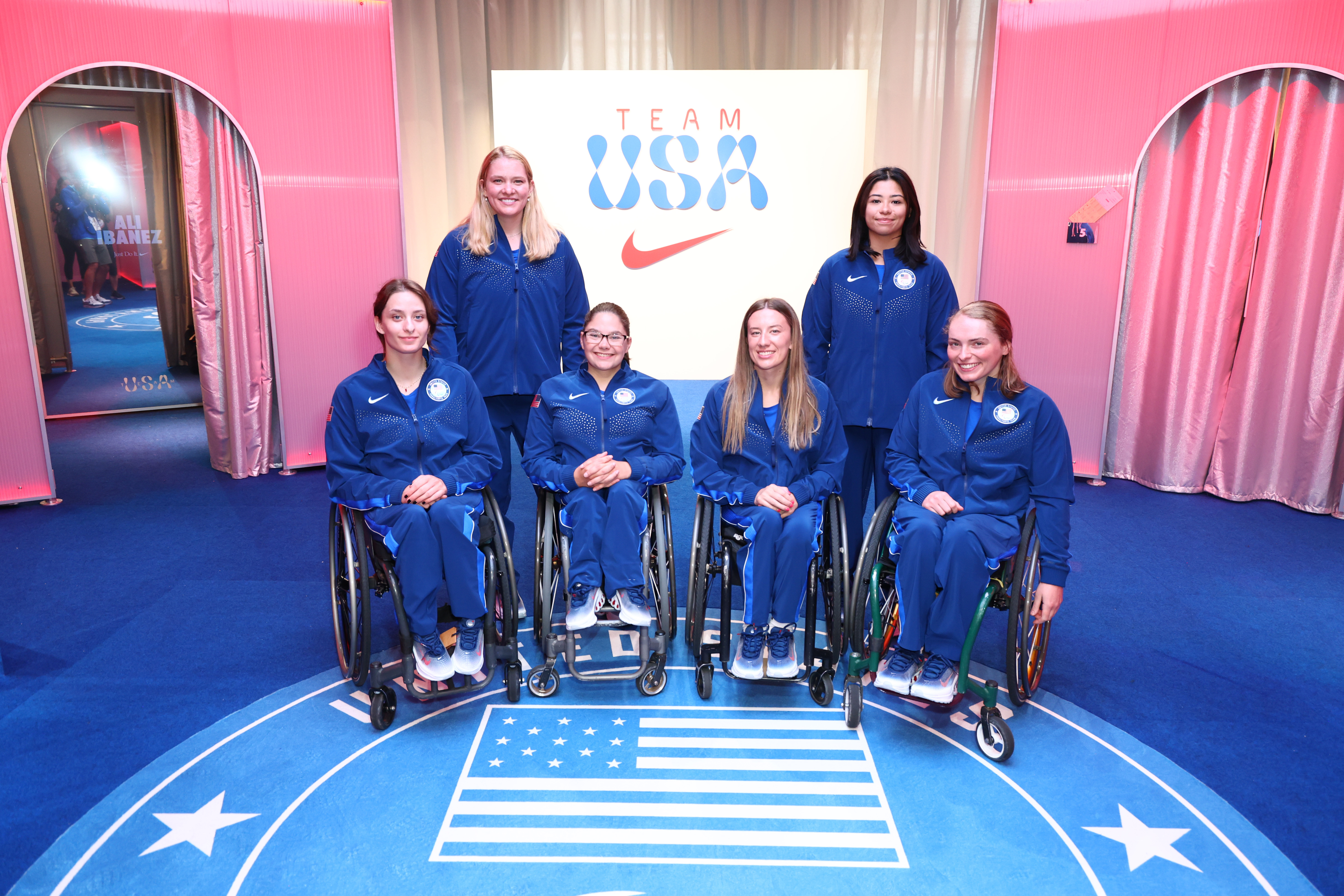
Team USA Paralympians Alejandra Ibanez, Rose Hollermann, Kaitlyn Eaton, Abigail Bauleke, Ixhelt Gonzalez and Josie Aslakson pose for a photo in Paris, France on August 21, 2024 | Source: Getty Images
One user exclaimed, “Why were they ever not paid the same!!” A third user suggested, “They should get paid more,” emphasizing the value and respect that Paralympians have earned through their dedication and perseverance.
The debate also touches on the historical notion of amateurism in the Olympic Games, where athletes were traditionally not paid for their participation. However, as the landscape of professional sports has evolved, so too have expectations for compensation.
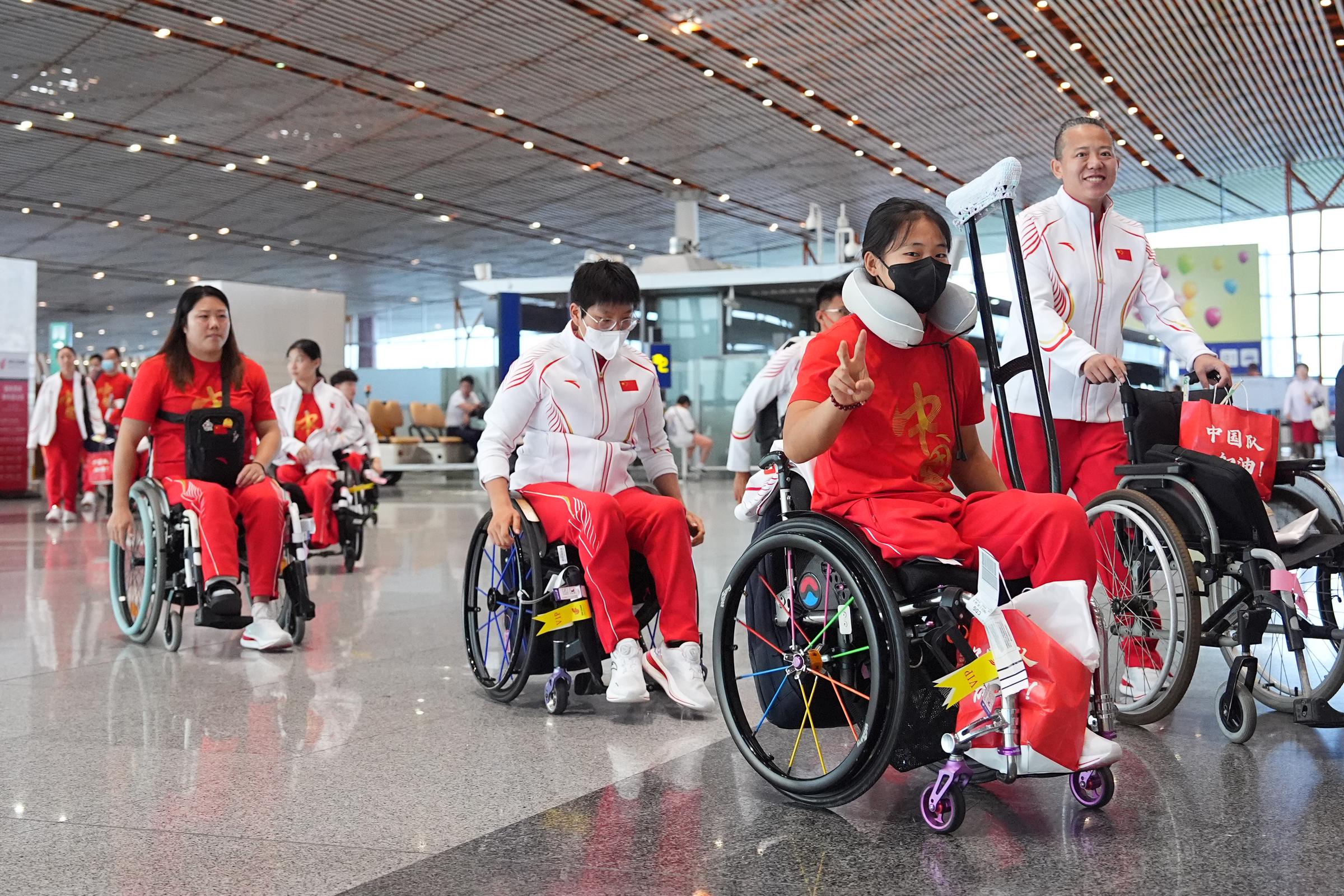
Chinese Paralympic delegation head for Paris, France on August 21, 2024 | Source: Getty Images
“Olympians are supposed to be amateurs. By definition – amateurs cannot be paid. AFTER the Olympics they can sign all the endorsement deals they choose,” commented another user.
This debate also intersects with broader discussions about the nature of financial rewards in sports. With the Paris 2024 Olympics came the introduction of prize money by World Athletics (WA) for Olympic gold medalists.
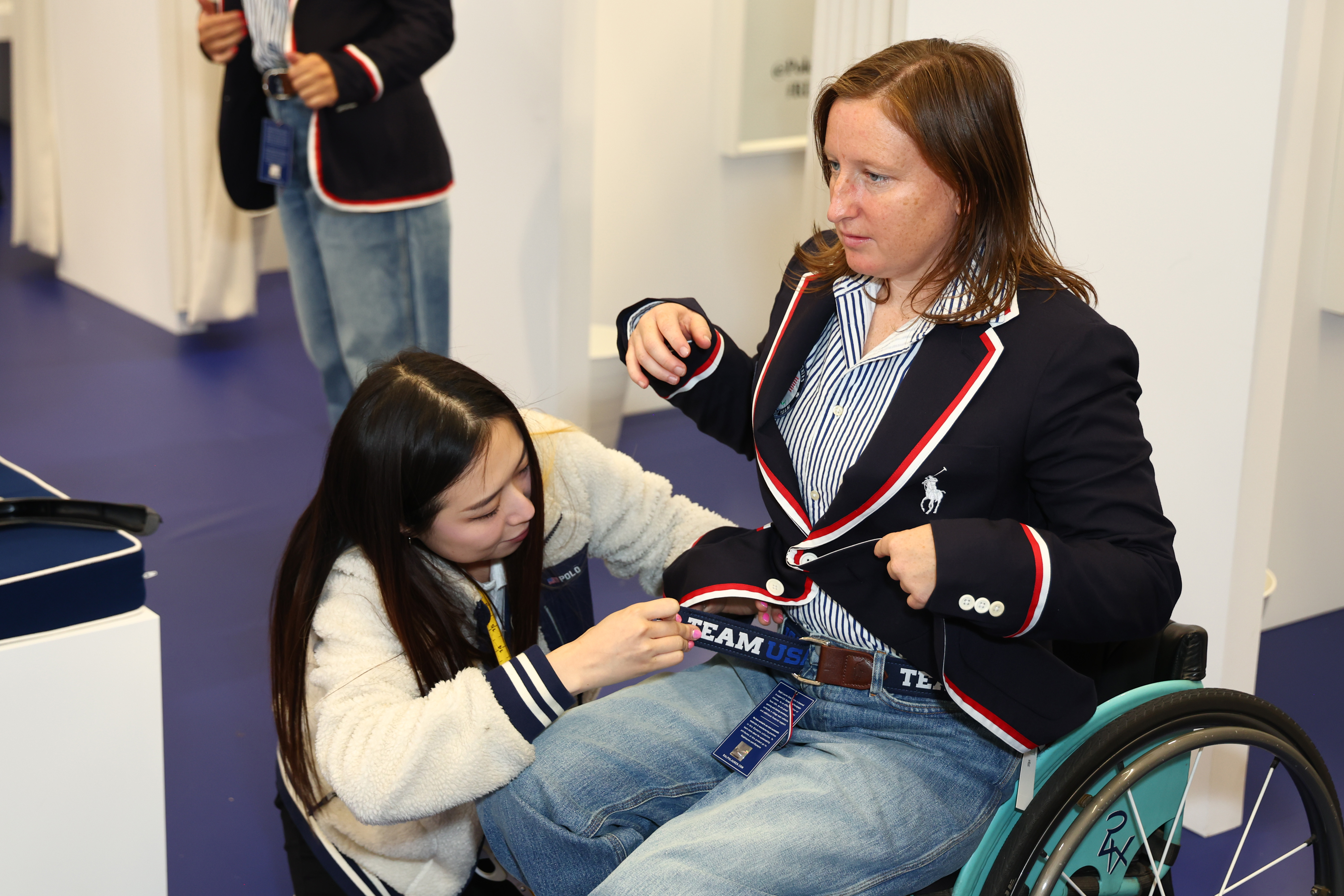
Team USA Paralympian Courtney Ryan photographed in Paris, France on August 21, 2024 | Source: Getty Images
WA set aside a $2.4 million prize pot for gold medalists in track and field events. With this development, there’s a growing expectation that similar models could be adopted to provide financial rewards for Paralympians. This would ensure they are recognized on par with their Olympic peers.
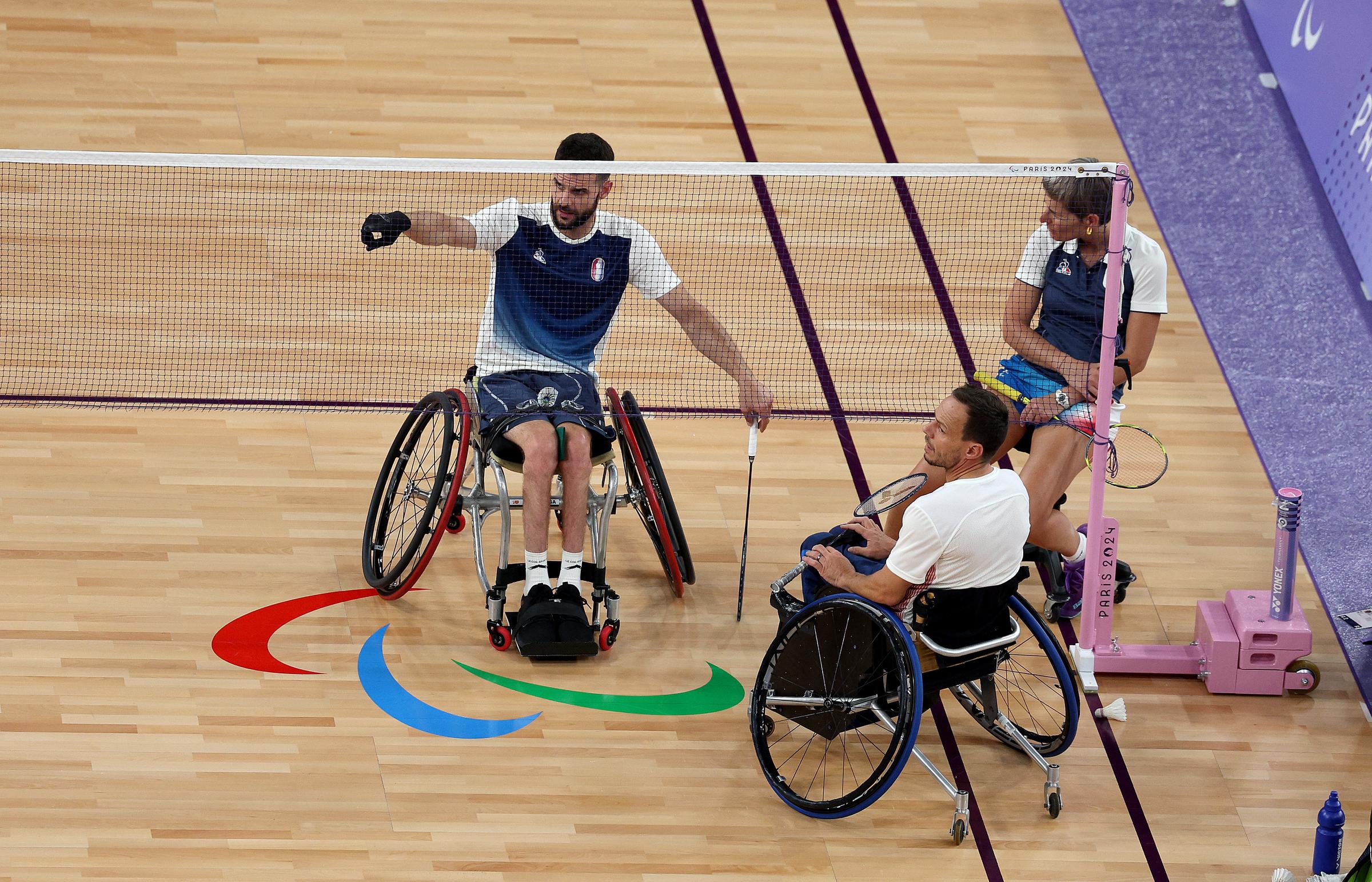
Thomas Jakobs and David Toupe during a WH1 and WH2 Para Badminton training session on August 26, 2024 | Source: Getty Images
Moreover, this change has sparked discussions about the future of sports inclusivity and how other nations might follow suit. If countries like the U.S. and Canada can lead by example, there is hope that others will recognize the importance of financial parity and take similar steps.
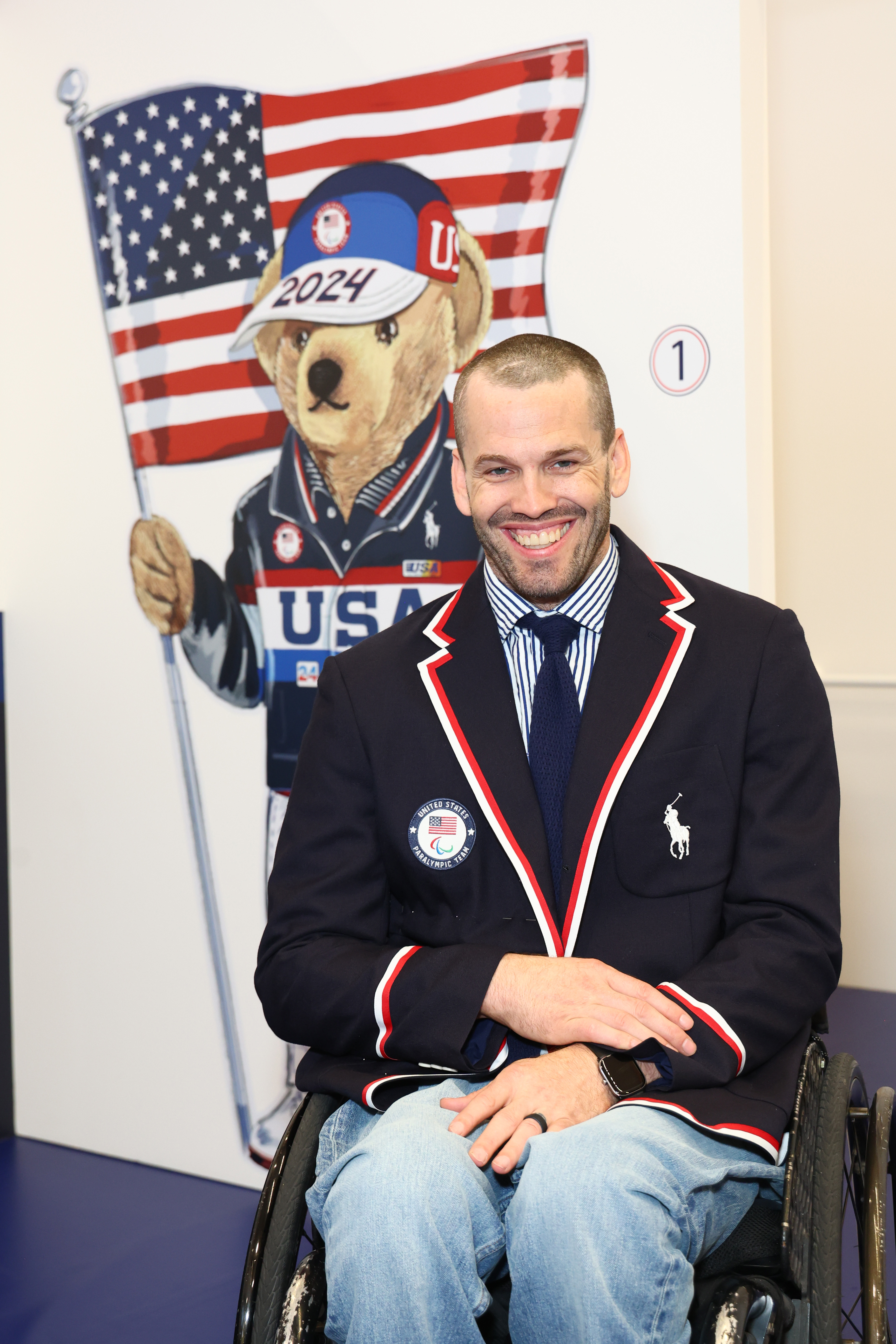
Team USA Paralympian Josh Wheeler poses for a photo in Paris, France on August 22, 2024 | Source: Getty Images
The move by the USOC could be the catalyst needed to inspire a more equitable approach to rewarding all athletes, regardless of their physical abilities.
